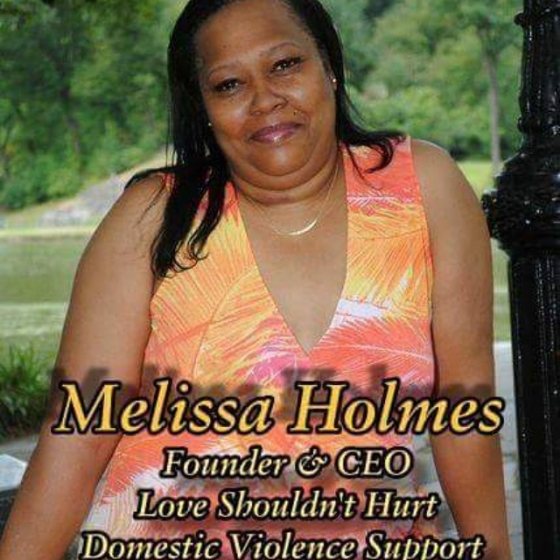
'Love Shouldn't Hurt NY, Inc.' is a Domestic Violence Awareness and Support Group. LSH is comprised of victims, survivors and supporters. After surviving two abusive relationships, I, Melissa Holmes, started LSH as a secret group on the social networking site, Facebook. I was looking for an arena to vent, post and provide support for people who have also suffered abuse. LSH started with about 30 members, we now have well over 1000 members worldwide.
LSH is giving a sense of purpose through daily prayers and supportive posts, motivating people to leave abusive situations and helping victims heal after abuse. There have also been occasions where LSH has assisted victims escape from their abusers. For 4 years LSH has encouraged, enhanced, empowered and elevated Domestic Violence awareness. Now we are campaigning against Domestic Violence in communities by paying forward what we receive inside LSH with combined acts of service and support.
I AM A SURVIVOR - and you can be too!
What is Domestic Violence?
Domestic violence is when one person does a variety of things to control another person in an intimate relationship. The shift in power can happen very slowly, over a period of time, so that the other person cannot even remember when it happened. Or it can happen very quickly after there is some sort of commitment or some change in the level of intimacy.
Many people wonder if what is happening to them is domestic violence because their partner has never hit them. Physical abuse is probably what most people think of when they think about domestic violence, but it is just one of the many ways that your partner might try to gain power and control in your relationship.
Ways a person might try to gain power and control over their partner include:
Isolation - making it hard for you to see your friends and family; telling you that your friends and family cause problems in the relationship or are trying to "come between you."
Economic abuse - having complete control over the money; making you account for every penny you spend; taking your money from you.
Verbal, emotional, psychological abuse - calling you names; putting you down or embarrassing you in front of other people; criticizing your abilities as a partner or parent.
Intimidation - making you afraid with a look, action, or gesture; getting you to do something by reminding you about "what happened last time."
Coercion and threats - showing you a weapon and threatening to use it on you; threatening to "out" you to family, friends, or employers if you are gay or lesbian; threatening to harm your family, friends, or anyone you might go to for help.
Physical abuse - pushing, grabbing, hitting, slapping, punching, or kicking you.
Sexual abuse - forcing you to have sex when you don't want to; making you engage in sexual acts that make you uncomfortable; forcing you to engage in prostitution.
Using children - undermining your authority with your children; threatening to take the children away from you by kidnapping or getting custody of them; "pumping" your children for information about you.
Minimizing, denying, blaming - making you think the abuse is your fault; saying the abuse was caused by stress, alcohol, or problems at work; denying that the abuse happened at all.
Abuse is not always physical.
These are some of the most common ways that abusers try to control their partners, but certainly not the only ones. If your partner does things that restrict your personal freedom or that make you afraid, you may be a victim of domestic violence.
You are not alone. Millions of people are abused by their partners every year. But it is important to know that more resources are available now than ever before to help women and their children be safe.
Why do Abused Women Feel Trapped?
Many people who are abused by their intimate partner just want the violence and abuse to stop, but they don't want the relationship to end. But even when they do want to get out of the relationship with the abuser, it's hard.
Under the best of circumstances, it is not easy to end a relationship with an intimate partner. Love, family, shared memories, and commitment are bonds that are hard to break. Cultural or religious beliefs may be barriers to ending a marriage. Immigration status may be another obstacle. While ending a relationship is hard for everyone, women who are abused face the added risks of physical, emotional and psychological harm. There are risks that come with every decision an abused woman makes.
Donations can go to:
Melissa Holmes
c/o Love Shouldn't Hurt
949 Ogden Ave #1D
Bronx, NY 10452







